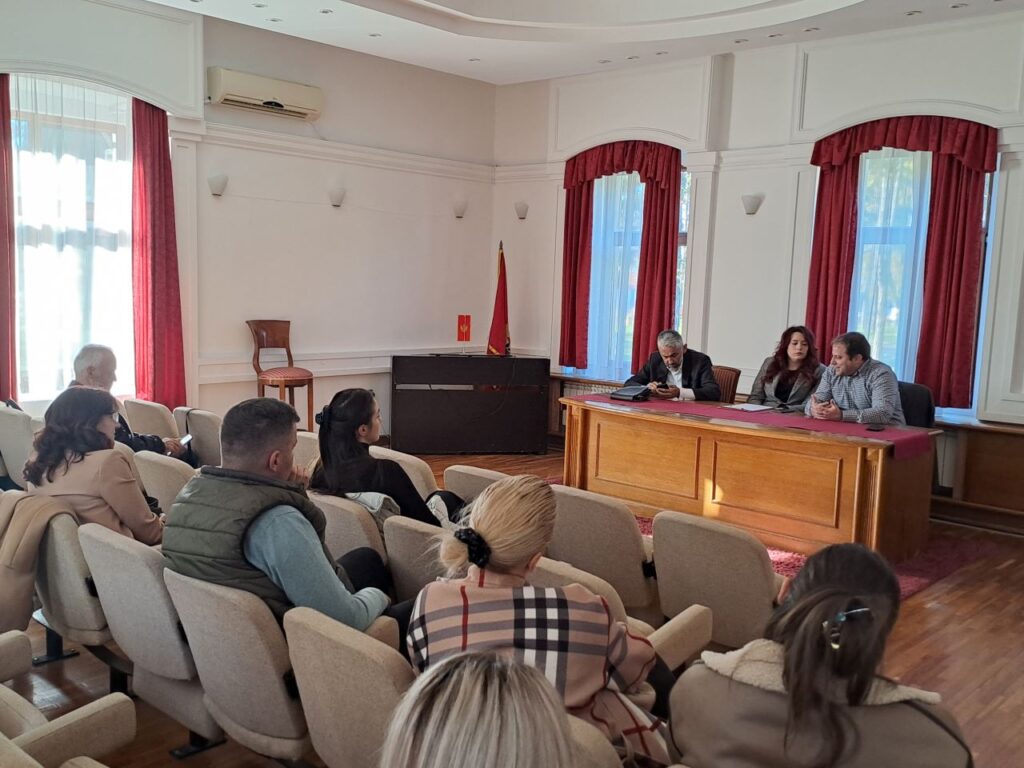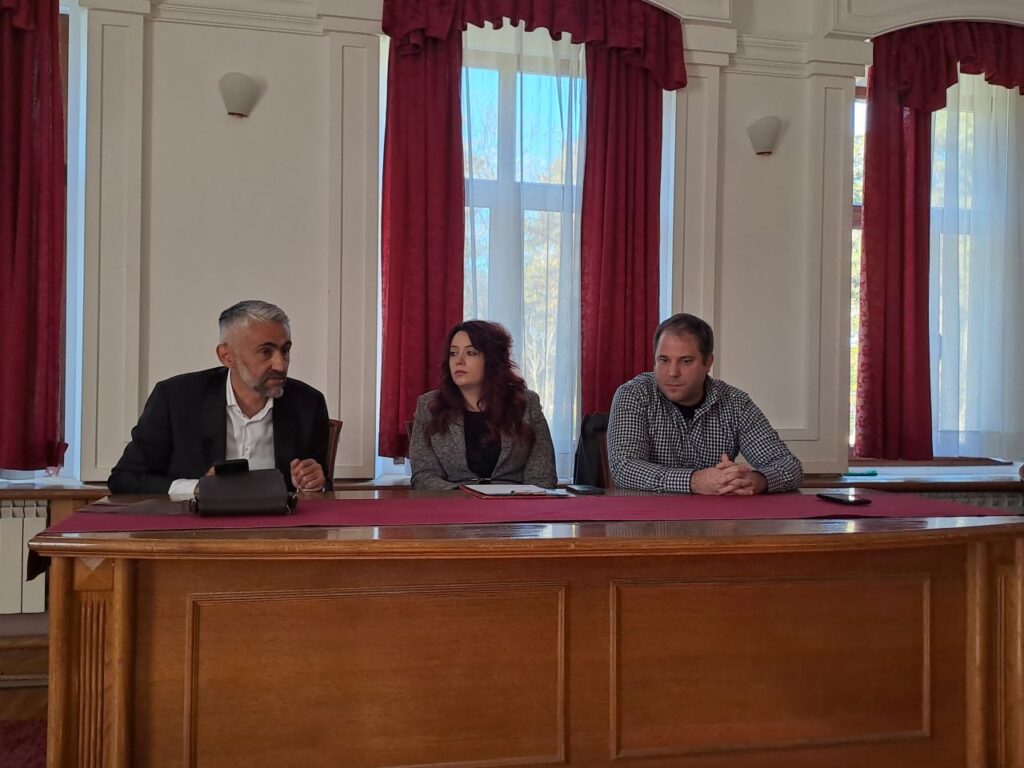Ignorance among citizens creates fear of the unknown, leading to resistance and distance. It is everyone’s duty to contribute to the best of their ability and view differences as a source of enrichment. This was one of the messages delivered at a public forum on intercultural development in various municipalities in Montenegro, organized today by the Centre for Civic Education (CCE) at the Public Library “Njegoš” in Nikšić, was supported by the Ministry of Human and Minority Rights as part of the “Harmony in Diversity” project.
Arsenije Lalatović, Vice President of the Nikšić Municipal Assembly, emphasized that the increasing ethnic distance among citizens of Montenegro should be treated as “a bleeding wound that requires attention to how and to what extent it can be healed.” He stated that it is important to listen to others, but equally essential to reflect on oneself: “Both here and worldwide, whether due to international developments or domestic circumstances, the blame is always directed at someone else— with fingers constantly pointed at others. There is a lack of tolerance and understanding, first towards ourselves and then towards those we spend time with. We tend to listen only to ourselves and conduct monologues, while the opportunity for listening to others and engaging in dialogue often slips by,” Lalatović remarked.
He believes that local governments can contribute to the promotion of multiculturalism and interculturalism through the organization of cultural events and educational programmes that focus on these topics, in collaboration with NGOs and other stakeholders. “Local governments can address issues on one hand, but also serve as a platform to hear citizens’ concerns on the other. Language in the public sphere can significantly help reduce negative narratives and social stereotypes. It is our collective duty to contribute as much as we can and to see differences as a wealth,” he stated.
“Religion and nationality must not be obstacles to building relationships with others; humanistic values must be prioritized. If neither the legal framework, political parties, nor religious communities generally support ethnic distance, why is it growing in Montenegrin society? The answer is complex and rooted in the political and social ghosts of the past, including those from the 1990s. Although we have moved away from negative trends and have made significant progress as a society, we have never fully condemned or resolved some trends that burdened us during the 1990s,” said Miloš Vukanović, President of the Association of History Teachers HIPMONT.
He also addressed the broader societal context. “Negative media narratives play a significant role. Over the past few decades, there have been media portrayals that have directly or indirectly fueled such tendencies. Additionally, there is also widespread ignorance among citizens, which causes fear of the unknown and leads to resistance and distance,” he concluded.
Today’s forum in Nikšić was the fifth in the series, following similar events in Bar, Bijelo Polje, Podgorica, and Plav, with the final session planned for Herceg Novi. The goal of this series of forums is to strengthen dialogue and exchange perspectives among institutions, civil society, the media, and citizens to identify key challenges and needs in the development of interculturalism in local communities.
Ivana Matanović, Programme Associate


